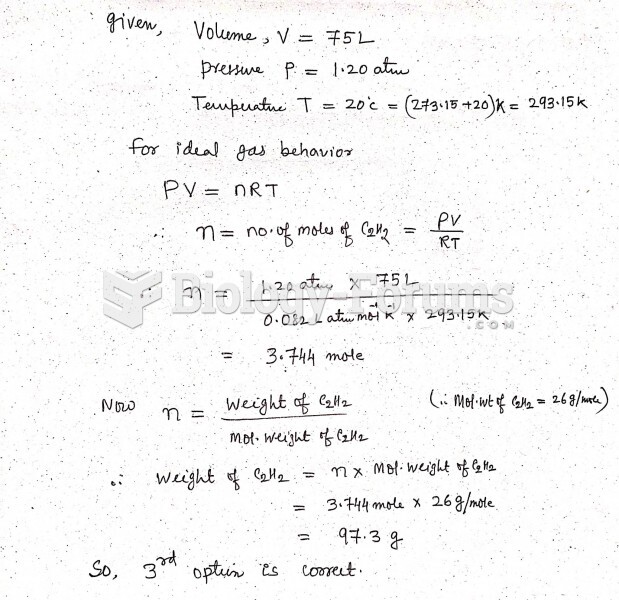|
|
|
In 1864, the first barbiturate (barbituric acid) was synthesized.
Eating food that has been cooked with poppy seeds may cause you to fail a drug screening test, because the seeds contain enough opiate alkaloids to register as a positive.
For about 100 years, scientists thought that peptic ulcers were caused by stress, spicy food, and alcohol. Later, researchers added stomach acid to the list of causes and began treating ulcers with antacids. Now it is known that peptic ulcers are predominantly caused by Helicobacter pylori, a spiral-shaped bacterium that normally exist in the stomach.
Pubic lice (crabs) are usually spread through sexual contact. You cannot catch them by using a public toilet.
More than 34,000 trademarked medication names and more than 10,000 generic medication names are in use in the United States.







